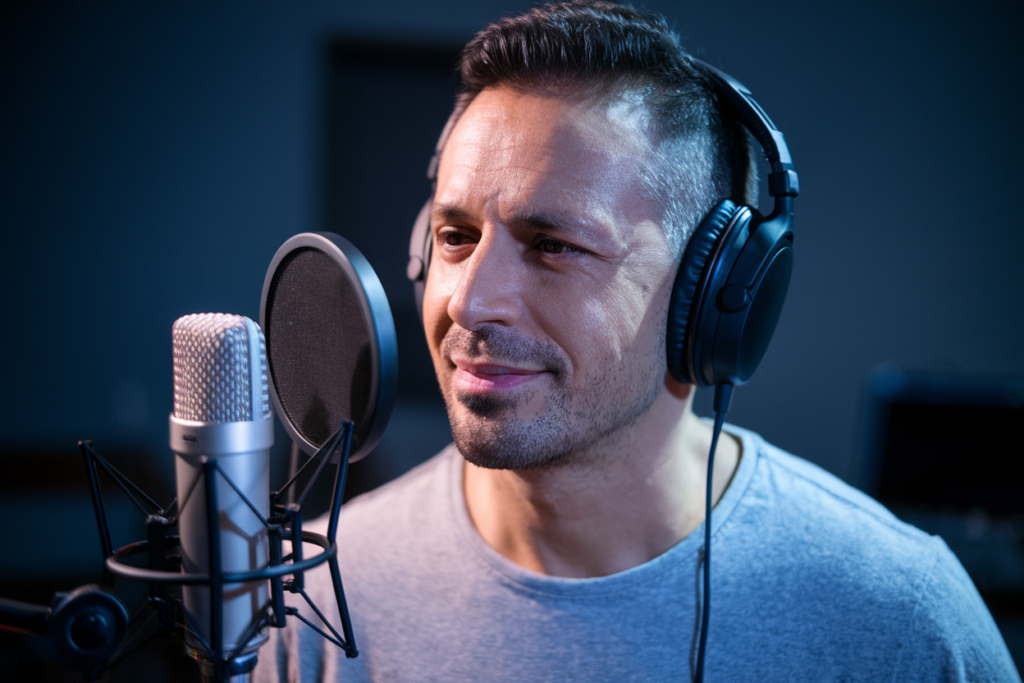Key Takeaways
- Historical Connections: Uzbekistan and Turkey share deep historical ties influenced by cultural exchanges, migrations, and significant events such as the Seljuk Empire’s expansion and the Ottoman period.
- Linguistic Heritage: Both languages belong to the Common Turkic language family, showcasing similarities in phonetics, grammar, and vocabulary that facilitate mutual understanding.
- Cultural Traditions: Shared customs like celebrating Nowruz highlight the rich cultural connections between both nations, emphasizing values such as hospitality and respect for elders.
- Political Cooperation: Strong diplomatic relations established after Uzbekistan’s independence have fostered collaboration in areas like security, trade, and cultural exchange through bilateral agreements.
- Economic Partnership: Trade between Uzbekistan and Turkey has grown significantly, with key exports from both countries enhancing their economic ties through joint ventures and foreign direct investments.
Have you ever wondered how Uzbek and Turkish are connected? These two languages, though distinct, share fascinating ties that go beyond mere vocabulary. Understanding their connection can unlock insights into cultural exchanges and historical migrations that shaped Central Asia.
Historical Ties Between Uzbekistan and Turkey
Historical ties between Uzbekistan and Turkey showcase deep connections shaped by shared culture, language, and migration patterns. These links highlight the significance of mutual influences over centuries.
The Origins of Turkic Peoples
The origins of Turkic peoples trace back to Central Asia, where various tribes emerged around the 6th century. These groups spoke languages classified under the Turkic family, establishing a linguistic foundation that connects modern Uzbek and Turkish. As these tribes migrated westward over time, they carried their cultural practices and traditions with them. You can see how this early movement laid the groundwork for ongoing interactions between Uzbek and Turkish societies.
Major Historical Events Shaping Connections
Major historical events further solidified ties between Uzbekistan and Turkey. The Seljuk Empire’s expansion in the 11th century facilitated significant exchanges in art, science, and philosophy across Central Asia and Anatolia. Additionally, during the Ottoman period (14th-20th centuries), Turkish influence spread into Central Asia as trade routes flourished.
In more recent history, both nations gained independence from larger empires in the early 20th century—Uzbekistan from Soviet control in 1991 while Turkey transitioned to a republic after World War I. This newfound sovereignty opened avenues for collaboration in various sectors including education, economics, and culture. Today, numerous agreements foster cooperation on political levels while honoring their intertwined histories.
Linguistic Similarities
Uzbek and Turkish share significant linguistic similarities, rooted in their common Turkic heritage. Exploring these connections reveals a fascinating tapestry of language that enhances cultural understanding.
Common Turkic Language Family
Both Uzbek and Turkish belong to the Common Turkic language family, which encompasses various languages spoken across Central Asia and beyond. This shared lineage dates back to ancient tribes, laying a strong foundation for mutual intelligibility among several Turkic languages. The phonetic structures, grammar rules, and syntactic patterns demonstrate remarkable parallels. For instance, vowel harmony is a characteristic feature in both languages, influencing how words are formed and pronounced. Such similarities facilitate communication between speakers of either language, showcasing the enduring connection forged through centuries of shared history.
Key Vocabulary and Phrases
Numerous vocabulary items highlight the similarities between Uzbek and Turkish. Basic everyday terms often show striking resemblances or identical forms. Words like «ev» (house) and «su» (water) appear in both languages with similar pronunciations and meanings. Additionally, many phrases reflect cultural practices unique to those who speak them; for example, greetings such as «merhaba» signify hospitality in both cultures. Recognizing these key vocabulary parallels not only fosters better comprehension but also strengthens the bond between people from Uzbekistan and Turkey by emphasizing their intertwined heritages.
Exploring these linguistic facets illuminates how deeply connected Uzbek and Turkish truly are at their roots.
Cultural Connections
Cultural ties between Uzbek and Turkish people run deep, reflecting shared history and traditions that enrich both societies.
Shared Traditions and Customs
Shared traditions form a vital part of the connection between Uzbekistan and Turkey. Both nations celebrate similar festivals, such as Nowruz, marking the Persian New Year with vibrant rituals. You’ll find festivities filled with traditional music, dance, and culinary delights that highlight their mutual appreciation for hospitality. In daily life, customs related to family gatherings emphasize respect for elders—a value held dearly in both cultures. Such practices foster community bonds while reinforcing a sense of belonging across generations.
Influence of Folk Arts
Folk arts serve as another significant cultural link between Uzbekistan and Turkey. Tashkent’s intricate ceramics mirror the artistry found in Istanbul’s tiles; both showcase brilliant colors and detailed designs influenced by Islamic art. Traditional music styles from each country feature unique instruments yet share rhythmic patterns that resonate with one another. Dastan storytelling in Uzbekistan parallels Turkish oral traditions, emphasizing shared narratives passed down through time. This artistic exchange not only preserves heritage but also strengthens connections between people who appreciate the beauty in their similarities.
Political Relations and Diplomacy
Uzbekistan and Turkey share a robust political relationship characterized by mutual respect and cooperation. These ties are rooted in historical alliances that date back centuries, reflecting shared interests and cultural affinities.
Historical Alliances
Historical alliances between Uzbekistan and Turkey gained momentum during the 20th century. Following Uzbekistan’s independence in 1991, both nations sought to strengthen their diplomatic connections. The establishment of bilateral agreements marked a significant turning point, facilitating collaboration across various sectors. Notably, both countries recognized the importance of fostering economic growth through trade partnerships. Key events such as state visits have further solidified these relationships, showcasing a commitment to regional stability.
Current Diplomatic Engagements
Current diplomatic engagements highlight ongoing collaboration between Uzbekistan and Turkey. Both countries engage regularly through high-level meetings focused on enhancing security, trade, and cultural exchange. Joint initiatives promote investment opportunities that benefit both economies while maintaining a focus on sustainable development. Additionally, cultural programs emphasize their shared heritage through art exhibitions and educational exchanges that deepen mutual understanding. Regular dialogues at international forums reflect their alignment on key global issues, demonstrating a united front in addressing challenges within Central Asia.
These diplomatic efforts serve not only to strengthen bilateral relations but also contribute to broader regional stability in Central Asia.
Economic Ties
Uzbekistan and Turkey share strong economic ties, enhancing collaboration across various sectors. Their relationship fosters growth through trade, investments, and joint ventures.
Trade Relations
Trade between Uzbekistan and Turkey has flourished over the years. In 2021, bilateral trade reached approximately $3 billion, with both nations aiming to increase this figure significantly. Key exports from Uzbekistan include textiles, agricultural products, and natural resources. Turkey exports machinery, electronics, and consumer goods to Uzbekistan. The two countries conduct regular trade fairs to showcase their products and strengthen business connections.
Joint Ventures and Investments
Joint ventures play a crucial role in deepening economic ties between Uzbekistan and Turkey. Numerous Turkish companies have established operations in Uzbekistan across industries like construction, textiles, and telecommunications. For instance, the construction sector benefits from collaborations that leverage Turkish expertise in large-scale projects. Both governments encourage foreign direct investment (FDI), creating a favorable environment for investors seeking opportunities in Central Asia. As these partnerships grow stronger, they pave the way for continued economic development within both nations.
Conclusion
The connections between Uzbek and Turkish languages and cultures run deep. By exploring their shared heritage you gain a richer understanding of Central Asia’s historical narratives. The intertwining of language customs and traditions reflects a vibrant tapestry that continues to evolve today.
As both nations strengthen their political and economic ties the future looks promising for further collaboration. Embracing these connections not only honors the past but also paves the way for a flourishing relationship that benefits both societies. Recognizing these links enriches your appreciation of the unique cultural landscape shaped by centuries of interaction.
Frequently Asked Questions
What is the relationship between Uzbek and Turkish languages?
The Uzbek and Turkish languages are closely related, both belonging to the Common Turkic language family. This connection highlights significant linguistic similarities, including phonetic structures and vocabulary. Understanding these ties offers insights into their shared cultural heritage and historical interactions.
How did historical migrations influence the cultures of Uzbekistan and Turkey?
Historical migrations, particularly from Central Asia around the 6th century, shaped the cultural identities of Uzbekistan and Turkey. The expansion of empires like the Seljuk Empire contributed to exchanges in art, science, and philosophy that strengthened their cultural bonds over time.
What customs do Uzbek and Turkish people share?
Uzbek and Turkish cultures share various customs, most notably the celebration of Nowruz, which includes vibrant rituals, music, dance, and traditional foods. Both societies value family gatherings and respect for elders as integral parts of their traditions.
How have political relations developed between Uzbekistan and Turkey?
Since Uzbekistan gained independence in 1991, political relations with Turkey have flourished through mutual respect and cooperation. Bilateral agreements facilitate collaboration in trade, security concerns, cultural exchange initiatives, enhancing diplomatic connections between the two nations.
What are the key economic ties between Uzbekistan and Turkey?
Uzbekistan’s economy significantly benefits from its trade relations with Turkey; bilateral trade reached approximately $3 billion in 2021. Key exports from Uzbekistan include textiles and agricultural products while Turkey exports machinery. Joint ventures further strengthen economic collaboration across various sectors.







